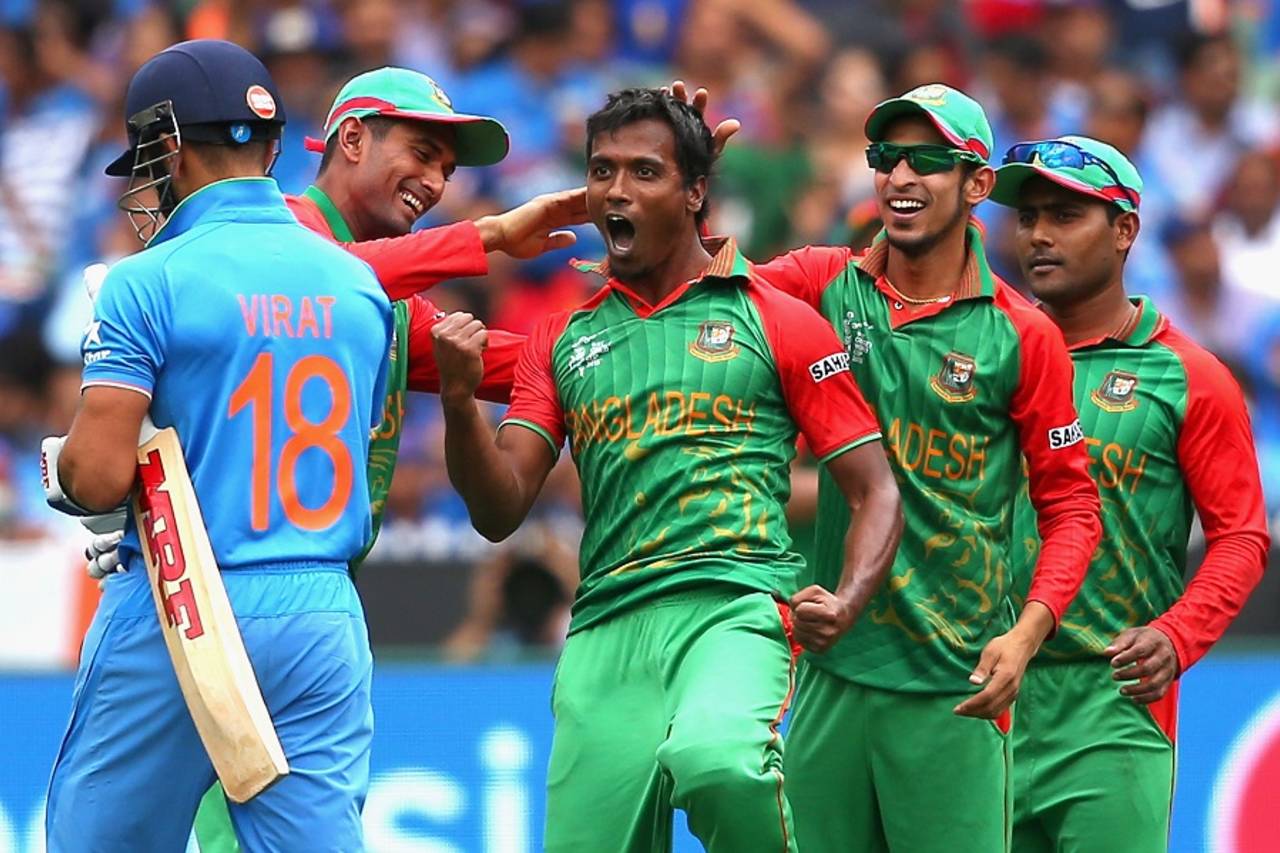Like love, the spirit of cricket is an ethereal entity, and although it can't be touched, held, or examined under a microscope, few cricketers would doubt its existence. But also, like love, it has different manifestations in different cultures. Those in horror that our game of gentlemen should now require a formal
red- and yellow-card system to control errant players are missing the fact that we have moved on from a single, and mostly Victorian, concept of what this mysterious spirit is.
In a time when laws and model behaviour on the cricket field came mostly from a single source - the playing fields of English public schools - we now have a global game that varies from wickets scratched out in Mumbai maidans, car-park games with tennis balls in Bradford, immaculate watered squares in Johannesburg, to an artificial strip at the foot of Mount Fuji in Japan.
Different cricketing cultures will interpret this "notion" of good behaviour in various ways. What was okay for me playing working-class cricket in the North Leicestershire league of the 1980s isn't suitable in 2016 during friendlies for an Actors XI in Sussex. I had a gnarly old Leicester skipper who would tell me to beam lidless batsmen coming down the track, and my father regularly played a Nottingham colliery side who painted the crease with a six-inch-wide brush to trick batsmen into stumpings - all these were accepted methods of winning, of playing the game, in the particular cricket of that time and place.
I've written before about our innate and creative
ability to cheat. I stand by my claim that it's "the codified rules, empirical rather than moral, that ultimately define a sport".
We are cunning animals at finding ways to win. The Under-19 World Cup
mankading is a prime example, and the direct result of a grey area that the spirit of cricket supposedly overrides. Black-and-white laws, punishable with immediate action that detriments the offending team, can only help clarify what is cloudy.
Alas, despite my support for the red-and-yellow system, of once again making umpires integral to the game, rather than conduits for an HD replay, it's an admission that cricket itself has failed to police its miscreants.
We are cunning animals at finding ways to win. Black-and-white laws, punishable with immediate action that detriments the offending team, can only help clarify what is cloudy
The prevalence of CCTV in the UK, which has more cameras per person than any other country in the world, is a failure of the community to get involved with the management of its own behaviour. Rather than families, fathers and teachers, we have surveillance, regulation and government. That sounds like modern cricket, rugby and football, where the jury gives a verdict on the crime via a screen. Where behaviour is regulated by a guarantee of evidence, not the awareness of a player to abide by the rules because breaking them would be morally wrong.
Yet herein lies a happy contradiction. By imposing regulations from the top, rather than forlornly expecting the players to manage their own adrenaline levels, we're actually putting control of behaviour back onto the pitch. If a captain senses his bowler is losing his cool, and his team can ill afford to have their star quick watching from the boundary, this is the calm advice to cool down his hot-headed paceman. When punishment is immediate, and the player can see their rule-breaking could lose the game for their fellow team-mates and friends, then the policing of the people has returned to the community - the players.
Back in the late 1990s I used to play rugby between cricket seasons, and was decent enough to represent Leicestershire at regional level and make the England Colts squad. It might be remarkable to believe now, but you could actually punch an opposition player in the face and not be sent off. You could stamp all over his body and get away with at least one late tackle on the opposition fly half, before being dismissed for an early bath. But you could never ever backchat the referee. This was akin to cheeking God, and something I never saw even the wildest rugby hard man attempt. The lack of respect for football referees is in part due to their lack of powers to punish verbal abuse. And although the cricket umpire occasionally gets a Mike Gatting finger-pointing, it's incomparable to the weekly verbals spat at officials by Premiership footballers.
However, according to the MCC, levels of respect for officials have diminished. Once protected by the noble ghost of Victorian good manners, via the rarefied spirit of cricket, the modern umpire requires empowering. When laws become distinct, rather than imagined, we have guidelines that can delineate behaviour. Umpires, instrumental in supporting or blocking law changes, will once again be relevant. The problem will be in the interpretation: What is sledging and what is banter? Who knows when a bowler has or hasn't deliberately zeroed a beamer into a batsman's grille?
The trial starts this season in club, school and university cricket, and the MCC may not impose it on the professional game. At this stage I'm a proponent. To err is to be human. By bringing the umpire back into cricket, by asking a human to make in-game decisions about other humans rather than relying on the camera lens, we are once again more than just pixels on a screen.
Nicholas Hogg is a co-founder of the Authors Cricket Club. His third novel, TOKYO, is out now. @nicholas_hogg
